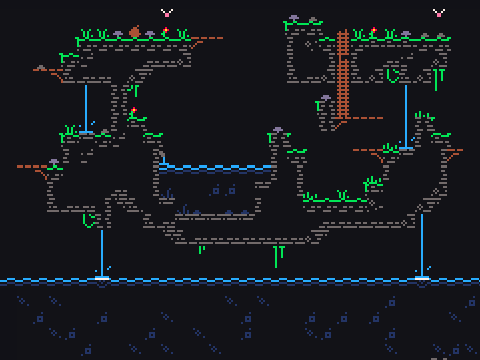https://github.com/ponywolf/tilekit
A loader and helper functions for RXI's TileKit in Solar2D
https://github.com/ponywolf/tilekit
Last synced: 8 months ago
JSON representation
A loader and helper functions for RXI's TileKit in Solar2D
- Host: GitHub
- URL: https://github.com/ponywolf/tilekit
- Owner: ponywolf
- License: mit
- Created: 2020-06-30T19:04:57.000Z (over 5 years ago)
- Default Branch: master
- Last Pushed: 2020-06-30T22:29:17.000Z (over 5 years ago)
- Last Synced: 2025-03-19T09:15:31.508Z (8 months ago)
- Language: Lua
- Size: 72.3 KB
- Stars: 7
- Watchers: 1
- Forks: 0
- Open Issues: 0
-
Metadata Files:
- Readme: README.md
- License: LICENSE
Awesome Lists containing this project
- awesome-solar2d - tilekit - a simple TileKit loader. (Level Design & Management)
README
# TileKit for Solar2D
*tilekit* is a simple [TileKit](https://rxi.itch.io/tilekit) loader for [Solar2D](http://solar2d.com/) (formerly CoronaSDK)
**TileKit for Solar2D** loads a TileKit map as a Solar2D display object with a few helper functions. TileKit is unique because it uses a pattern matching system to decorate a map instead of placing each individual tile. Future versions of this library will include functions for decorating random maps with TileKit's ability to export rule sets as lua code.

### Features
- [x] Loads .JSON exports from [TileKit](https://rxi.itch.io/tilekit)
- [x] Basic animated tiles
- [x] Helper functions for finding Objects, Tags, Tiles
### Quick Start Guide
```
-- set background color
display.setDefault("background", 34 / 255 ) -- match the blank tile
-- require the module
local tilekit = require "com.ponywolf.tilekit"
-- load the map and tileset image
local map = tilekit.load("dungeon.json", "colored_tilemap.png")
```
#### map
The returned object (map) is a displayGroup with all the tiles added. It also has a few helper functions to work with the tile data
```
-- manipulate the map
map.x, map.y = 100, 100
map.alpha = 0.7
```
#### map.getObject(name) & map.getObjects(name)
map.getObject() returns the first object with that name. map.getObjects() returns an array of objects, even if there is just one
```
-- find an object
local hero = map.getObject("hero")
```
#### map.tile(x,y)
map.tile(x,y) returns the tile number at a map x,y
```
-- find a tile number at x,y
local tile = map.tile(10,10)
```
#### map.tag(tile)
map.tag(tile) returns the tags of a tile number
```
-- find that tiles tags
if map.tags(tile).wall then
print ("This is a wall")
end
```
You can chain those functions together as well
```
if map.tags(map.tile(10,10)).wall then
print ("The tile at 10,10 is a wall")
end
```
#### map.data
A decoded table of the original data is available at map.data